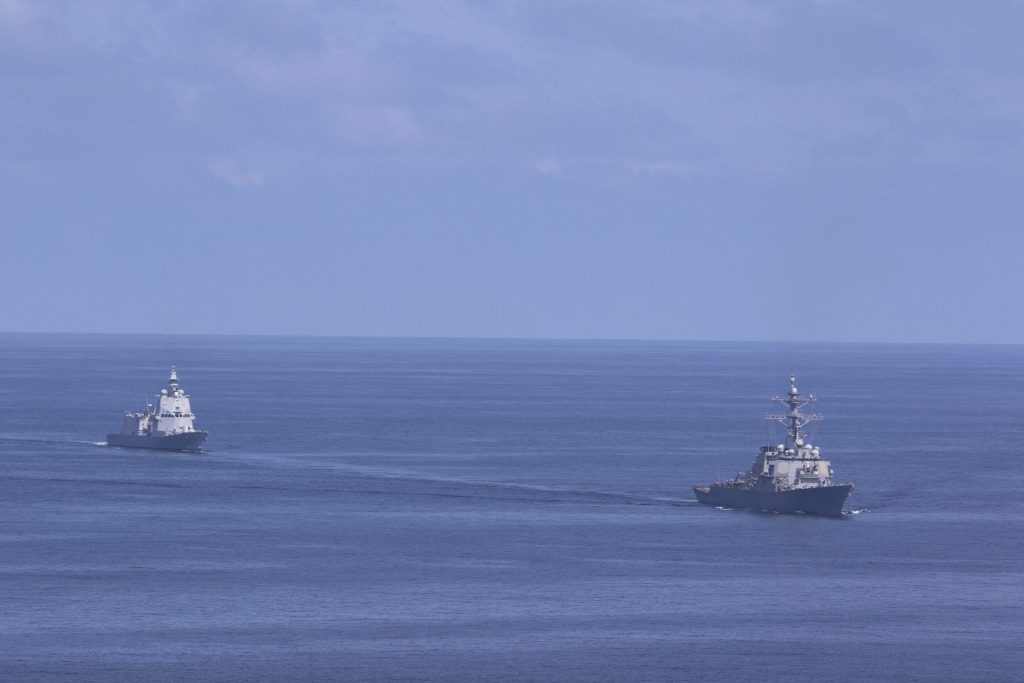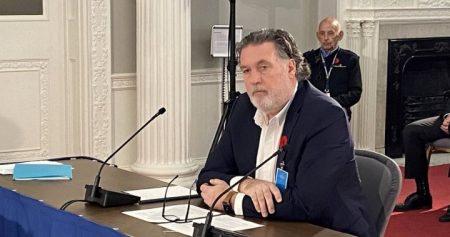The U.S. Navy has once again demonstrated its commitment to safeguarding maritime security in the Gulf of Aden, successfully intercepting and neutralizing a barrage of Houthi-launched missiles and drones targeting commercial vessels under U.S. escort. This marks the second such incident in a month, underscoring the persistent threat posed by the Iran-backed Houthi rebels to international shipping and regional stability. On December 9th and 10th, the USS Stockdale (DDG 106) and USS O’Kane (DDG 77), while escorting U.S.-flagged merchant ships through the strategically vital waterway, engaged and destroyed multiple unmanned aerial systems (UAS) and an anti-ship cruise missile launched by the Houthi militia. This decisive action prevented potential harm to American personnel, protected the commercial vessels, and averted a disruption to the crucial flow of maritime commerce through the region. The incident mirrors a similar attack thwarted by U.S. Navy vessels just weeks prior, highlighting the escalating tensions and the Houthis’ persistent belligerence in the region.
The repeated attacks underscore the growing complexity and volatility of the security situation in the Gulf of Aden and the broader Middle East. The Houthis, emboldened by their Iranian backing, have increasingly resorted to targeting commercial shipping, viewing it as a means to exert pressure and disrupt international trade. These actions not only threaten the safety of maritime traffic but also contribute to regional instability and risk escalating tensions further. The U.S. Navy’s swift and effective response underscores its commitment to maintaining freedom of navigation and protecting vital maritime trade routes, sending a clear message of deterrence to the Houthis and their sponsors. However, the continued attacks raise concerns about the potential for further escalation and the need for a comprehensive approach to address the underlying causes of the conflict.
The Houthis’ justification for these attacks lies in their linkage to the ongoing Israeli-Palestinian conflict, specifically the Israeli operations in Gaza. They claim their actions are in retaliation for Israel’s actions and vow to continue targeting shipping until Israel ceases its operations. This connection highlights the interconnectedness of regional conflicts and how tensions in one area can spill over and affect others. While the Houthis attempt to frame their actions as a response to the Israeli-Palestinian conflict, their attacks primarily target international shipping, impacting global trade and potentially exacerbating humanitarian crises. This tactic raises questions about the true motivations behind their actions and the extent to which they are exploiting the Israeli-Palestinian conflict to pursue their own regional ambitions.
The U.S. Navy’s successful interception of the Houthi attacks has garnered both praise and criticism. Supporters commend the Navy’s swift action in protecting American interests and ensuring the safety of international shipping. They argue that these defensive measures are necessary to deter further Houthi aggression and maintain stability in the region. However, critics argue that the U.S. focus on defensive measures alone is insufficient to address the root causes of the conflict and prevent future attacks. They call for a more comprehensive strategy that includes diplomatic efforts, humanitarian aid, and potentially more direct action against the Houthis and their Iranian backers. This divergence of opinions highlights the complex and challenging nature of the situation, with no easy solutions readily available.
The repeated Houthi attacks raise significant concerns about the safety and security of maritime trade in the region. The Gulf of Aden is a vital chokepoint for global commerce, with a substantial portion of international trade passing through its waters. Disruptions to shipping in this area can have far-reaching economic consequences, impacting global supply chains and potentially exacerbating existing humanitarian crises. The continued Houthi attacks threaten to undermine the stability of this crucial waterway, raising insurance costs for shipping companies and potentially discouraging vessels from transiting the area. This could have a cascading effect on global trade and further destabilize the region.
The escalating tensions in the Gulf of Aden highlight the urgent need for a comprehensive and multifaceted approach to address the underlying causes of the conflict. While the U.S. Navy’s defensive actions are crucial for protecting immediate interests, a long-term solution requires a concerted diplomatic effort involving regional and international actors. This effort should focus on addressing the political and economic grievances that fuel the conflict, promoting dialogue between the warring parties, and finding a sustainable path towards peace and stability. Furthermore, it is essential to address the role of Iran in supporting the Houthis and to work towards preventing the proliferation of weapons and technology that enable these attacks. Only through a comprehensive and sustained effort can the international community hope to mitigate the risks posed by the Houthi rebels and ensure the long-term security and stability of the Gulf of Aden.










